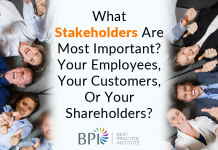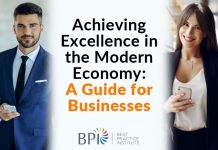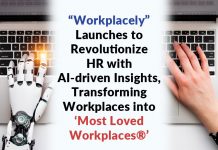For the past two decades, the primary method of talent management technology has been process automation tools. Anne Fulton knew there had to be a better way. So she and co-founder Jo Mills started Fuel50, a career pathing software that could do more.
“The talent wars are here, and we are facing a new talent economy, with employees having more power to demand a better career experience or find it elsewhere,” Fulton explained. Many companies struggled to develop career pathways that employees are hungry for, especially when the process takes years and quickly becomes out of date or is just confusing.
Fuel50’s HR technology is forward thinking, with its focus on people enablement and talent optimization. It’s really about allowing people to play to their talents at work, leverage their strengths and organizations to leverage the talent and potential within the workforce, Fulton explained.
“Think an employee-owned continuous peer feedback tool that delivers 360 feedback on a daily basis,” she added. “This is supporting our clients to see up to 25 percent gains in engagement survey results through improving leader conversations as we saw at a global financial services with their priceless careers campaign recently.”
Fulton and her team are on a mission to support great experiences for people working in large organizations across the globe. “We want people to be able to live their values at work, find purpose alignment at work, have meaningful work and to play to their talents,” Fulton said. Fuel50 helps people define the right internal career path for them, and provides resources and tools to create a continuous career growth experience. Fuel50 was even described as the “antidote to LinkedIn” by the Wall street Journal.
With Fuel50 software, employees can create career acceleration through stretch assignments, peer learning, and coaching and connections with others across the organization, while fast-tracking their career growth with automated plans. At the same time, business leaders can gain insight into the potential of their workforce. Leaders are given a coaching portal which highlights the engagers and motivators of each of their team members and has toolkits to support great coaching conversations, whether in the moment coaching or more strategic career growth conversations.
“Clients are seeing significant improvements in engagement metrics and retention often improves significantly on the deployment of Fuel50 career pathing solutions,” she said.
Fulton’s passion about career enablement and pathing solutions is infectious. She and her team at Fuel50 have touched nearly half a million employees in 60 countries for Fortune 500 companies like MasterCard, Citi, eBay, and more. The results? Engagement uplifts, diversity career acceleration, and millennial career experiences that retain and engage.
Ingersoll Rand came to Fuel50 because their exit survey data and engagement results both showed that career development was a significant issue for the business. So Fuel50 took a pilot to 500 engineers and contrasted their results against the rest of the business.
Fulton explained: “IR saw a 5 percent overall improvement in engagement compared with 2 percent in the rest of the business, and 11 percent improvement in quality of leader conversations versus 2 percent in the rest of the business, showing that even engineers can deliver great coaching conversations with the right enablement.” Then, Fuel50 trained their HR practitioners to take a series of career bootcamps and coaching workshops to disseminate in “micro-bite” learning moments across the business for sustainable impact at low cost.
Organizations that Fuel50 works with are on a path of cultural transformation to deliver a truly career-agile workforce and become what they call self-developing organizations. “It is truly delivering more fun at work for employees,” Fulton said.










